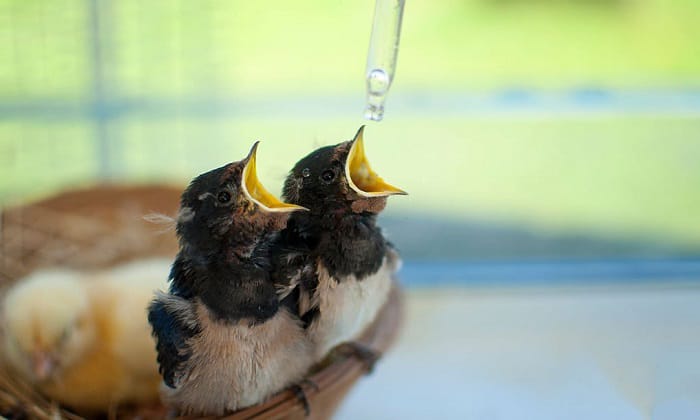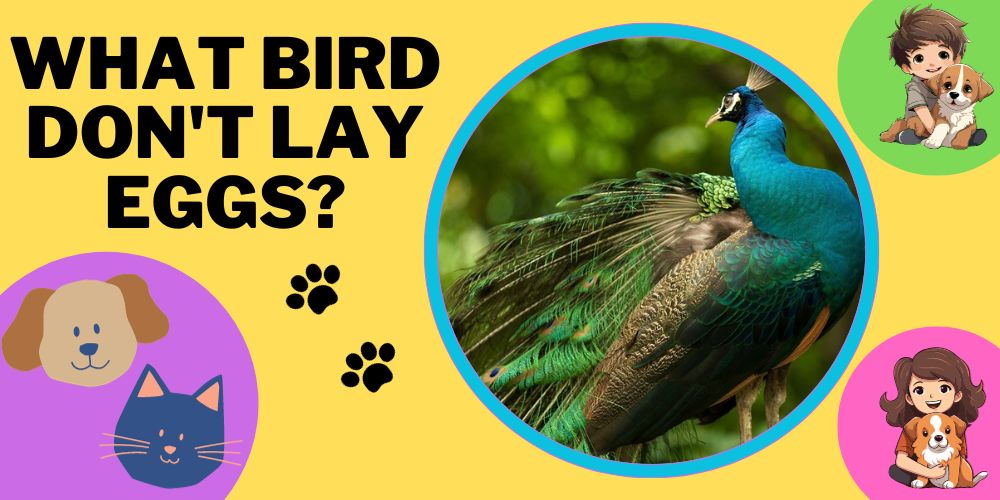Ever wondered if baby birds need water? It turns out that just like us, these little feathered creatures require hydration to survive. While they obtain most of their water from the food they eat, they still need access to fresh water to stay healthy and hydrated.

In this article, we will explore the importance of water for baby birds and provide some valuable insights into how to provide them with the necessary water sources. So, let’s jump right in and discover the world of baby birds and their hydration needs.
Birds’ Water Needs
Birds’ Water Requirements
As living creatures, birds require water to survive and thrive just like any other organism. Water is essential for many bodily functions such as digestion, temperature regulation, and the overall health of birds. Without an adequate source of water, birds may experience dehydration and become susceptible to various illnesses.
Water Sources for Birds
Birds have various sources from which they can access water. Natural sources include lakes, rivers, ponds, and streams, which are often readily available in their natural habitats.
Additionally, birds can also find water in man-made structures such as bird baths or puddles. These sources not only provide water but also offer opportunities for socializing with other birds.
Importance of Water for Birds
Water plays a vital role in maintaining the well-being of birds. It is especially crucial during the hot summer months when dehydration can be a significant risk.
Birds rely on water to regulate their body temperature and maintain hydration levels. They also use water for preening their feathers, which helps in keeping them clean, free from parasites, and ensuring their ability to fly effectively.
Water in the Nesting Period
Water for Eggs
During the nesting period, ensuring an adequate supply of water is crucial for birds. While eggs themselves do not require water, the parent birds need it to stay hydrated and maintain their health. This is especially important for birds that spend a significant amount of time incubating their eggs.
Providing Water for Nestlings
As nestlings start to hatch and grow, their water needs increase. Parent birds play an essential role in assisting their young ones in accessing water. They bring water to the nest and feed it directly to the chicks. This is done by regurgitating water or moist food to ensure the nestlings receive the necessary hydration.
Hydration of Baby Birds
Baby birds, like their parents, need water to grow and develop properly. They obtain water primarily from the food they consume, particularly if they are being fed insects or moist food by their parents. Efforts should be made to provide a conducive environment where they can access water easily.
Birds’ Access to Water
Parents Assisting with Water
Parent birds play a crucial role in aiding their young ones in getting access to water. They bring water to the nest and ensure their offspring stay hydrated. During the fledging phase, parent birds may guide their chicks to natural sources of water such as puddles, shallow pools, or bird baths.
Natural Water Sources
Birds have evolved to find water within their natural habitats. They are adept at locating and utilizing natural water sources such as bodies of water, dew on leaves, or even rainwater. Providing a suitable environment that includes nearby water sources can encourage birds to visit your yard or garden.
Human Intervention
In cases where natural water sources may be scarce, humans can help provide water options for birds. Bird baths, which can be filled with fresh and clean water, are a popular choice. These should be shallow enough for birds to safely access and ideally positioned near trees or bushes, allowing birds to retreat if they feel threatened.
Teaching Baby Birds to Drink Water
Introducing Water in Diet
When baby birds start to become more independent, it is essential to introduce water into their diet. This can be achieved by providing shallow dishes of water or moist food, which will encourage them to explore and gradually understand the concept of drinking water.
Observing Water Drinking Behaviors
As baby birds learn to drink water, it is beneficial to observe their behaviors. They may initially struggle to recognize water sources and how to access them. By patiently observing their actions, you can determine if they are drinking enough and whether any further intervention is needed.
Training Baby Birds
In some instances, baby birds may require a bit of training to drink water independently. Placing their beaks gently into shallow water or moist food can help them understand the purpose and process of drinking. With time and patience, they will learn how to access water on their own.
Signs of Dehydration in Baby Birds
Lethargy and Weakness
Dehydration can be detrimental to the health of baby birds. If they are not receiving adequate hydration, they may display signs of lethargy and weakness. Their movements may become slower, and they may become less active compared to well-hydrated chicks.
Dry or Discolored Feces
Another indicator of dehydration in baby birds is dry or discolored feces. A lack of water intake can affect their digestion and result in dry, hard, or unusually colored droppings. This change in their feces can be an indication that they are not receiving enough water.
Sunken Eyes or Skin
One visual sign of dehydration is sunken eyes or skin in baby birds. When they are not receiving sufficient water, their body loses moisture, leading to a visibly dry and shriveled appearance. The skin may lose its elasticity, and the eyes may appear sunken or dull.
Providing Water for Baby Birds
Using Bird Baths
Bird baths are a convenient and effective option for providing water to baby birds. These shallow pools of water should be cleaned regularly and filled with fresh water to prevent contamination. By placing the bird bath near their nesting area, baby birds can have easy access to water.
Mister or Drip Systems
In addition to bird baths, misters or drip systems can be installed in the vicinity of baby birds’ nests. These systems simulate natural water sources by creating a gentle mist or drip, attracting the attention of nearby birds. The subtle movement and sound of water can encourage baby birds to investigate and learn to drink.
Specialized Bird Waterers
Specialized bird waterers are another option for providing water to baby birds. These waterers are designed with smaller openings or perches to suit their size. They ensure that baby birds can access water easily without the risk of drowning or falling into the container.
Considerations for Water Quality
Using Clean and Fresh Water
The quality of water provided to baby birds is of utmost importance. It should always be clean and fresh to prevent the transmission of harmful bacteria or parasites. Regularly cleaning and replacing the water in bird baths or other water sources will help maintain a healthy environment for the birds.
Avoiding Chemicals or Additives
When providing water to baby birds, it is crucial to avoid using any chemicals or additives. Chlorinated or treated water can be harmful to their delicate systems. Similarly, adding sugar or sweeteners is unnecessary and could potentially be harmful. Water should be offered in its purest form.
Preventing Water Contamination
To prevent water contamination, it is essential to keep bird baths or other water sources clean. Regularly rinse and scrub bird baths to remove any debris or algae buildup. Positioning the water source away from potential contaminants such as pesticides, fertilizers, or areas with heavy traffic can also help maintain water quality.
Common Questions about Baby Birds and Water
Can Baby Birds Swim?
No, baby birds should not be encouraged or forced to swim. Their bodies are not adapted for swimming like some ducks or waterfowl. Instead, they rely on other methods to obtain water, such as drinking from shallow sources or receiving moisture from their food.
Should I Force-feed Water to Baby Birds?
Force-feeding water to baby birds is generally not recommended. Their ability to drink water will develop naturally as they mature and observe their parents. Providing water through shallow dishes or moist food will allow them to learn and adapt at their own pace without unnecessary stress.
What to do if a Baby Bird is Rejected by its Parents
If a baby bird is rejected by its parents, it is essential to seek help from a wildlife rehabilitator. These professionals have the necessary knowledge and experience to care for orphaned or abandoned baby birds. They can provide the appropriate nutrition and hydration needed for the bird’s survival.
Conclusion
Water is an essential component of a bird’s life, from their overall well-being to the survival of their young. Understanding the water needs of birds and providing them with clean and accessible water sources helps support their health and contributes to their successful growth and development.
By learning about their behaviors and making accommodations within their natural habitats, you can make a positive impact on the lives of these beautiful creatures. Remember, your efforts in providing water for birds, especially baby birds, can make a significant difference in their journey towards becoming independent and thriving members of the avian community.


